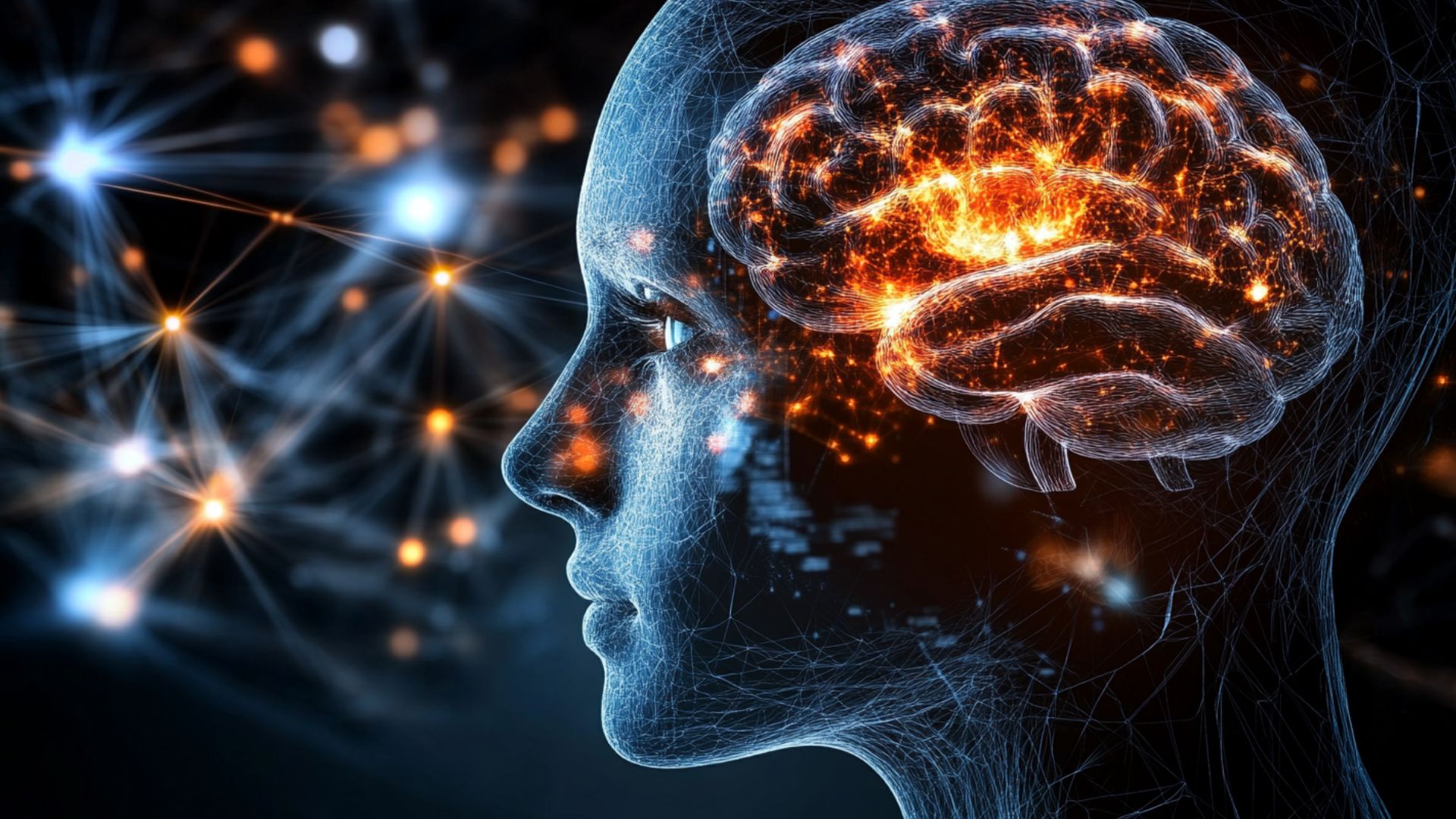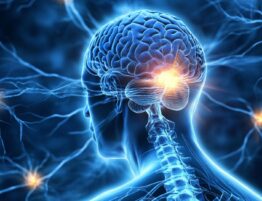Mental health and brain connection are deeply connected. Neurology helps us understand why. The brain controls our thoughts, emotions, and behaviors through billions of neurons and chemical messengers. When this system becomes unbalanced, conditions like depression, anxiety, or schizophrenia can develop. Neurologists study these connections to develop more effective treatments.
The brain’s structure, chemistry, and activity all affect mental health. When serotonin levels drop too low, depression can occur. When certain brain areas become too active or not active enough, anxiety or mood problems can develop. Advanced imaging, such as MRI, enables doctors to visualize these changes in the brain.
Mental health disorders often overlap with neurological conditions. People with Parkinson’s disease frequently experience depression. Those with epilepsy may have anxiety or mood disorders. This overlap highlights the importance of understanding the brain for effective care. Neurologists and psychiatrists now collaborate more frequently. They combine their knowledge to address these connected issues. Research continues to reveal new therapies that target specific brain mechanisms.
The Mental Health and Brain Connection
The brain is the control center for all psychological experiences. Every emotion, thought, and behavior starts from activity in your brain. Neurons communicate with each other using chemical messengers called neurotransmitters. Different brain regions coordinate in complex ways. When this system becomes unbalanced, mental health problems can appear.
Depression shows this connection clearly. People with depression often have lower serotonin levels. Anxiety disorders involve overactive brain circuits, especially in the amygdala. This is the brain’s fear center. It triggers worry or panic even when there’s no real danger. Scientists study these patterns to understand how brain problems cause neurological basis of mental illness symptoms.
Neurotransmitters play key roles. Dopamine affects motivation, pleasure, and reward. When dopamine signaling fails, depression or addiction can result. Serotonin plays a crucial role in regulating mood, sleep, and emotions. Many antidepressants work by increasing serotonin in the brain. The prefrontal cortex is responsible for decision-making and emotional control. When this area doesn’t work properly, conditions like bipolar disorder can develop.
Key brain-mental health connections:
- Neurotransmitters: Chemicals like serotonin and dopamine that control mood
- Brain regions: Areas like the amygdala and prefrontal cortex that manage emotions
- Neural circuits: Networks that cause symptoms when overactive or underactive
- Brain imaging: MRI and fMRI that show brain activity patterns
- Treatments: Medications and therapies that correct brain problems
Brain imaging has changed how we understand mental health. fMRI scans show which brain areas are active during different mental states. Doctors use this to guide treatment choices. They may prescribe medications that adjust chemical levels. They might recommend therapy that rewires thought patterns. Sometimes, they use brain stimulation to alter neural activity directly.
The Neurological Basis of Mental Illness
Mental illnesses have real biological causes in the brain. Depression, anxiety, and schizophrenia come from disruptions in brain function. Understanding these causes is changing how we diagnose and treat mental health conditions. The connection between mental health and the brain is crucial for developing effective treatments.
Depression shows clear brain changes. Brain scans often reveal reduced activity in the prefrontal cortex. This region is responsible for planning and emotional control. Depression also involves low levels of serotonin, dopamine, or norepinephrine. These chemicals maintain mood and motivation. Antidepressants that increase these chemicals can help, though treatment must be personalized. This demonstrates the neurological basis of mental illness.
Anxiety disorders show different patterns. The amygdala becomes hyperactive in people with anxiety. This makes the brain’s alarm system too sensitive. It triggers fear even in safe situations. Brain circuits become overactive, leading to persistent worry. Understanding the connection between mental health and the brain helps explain these symptoms.
Psychology vs. Neurology: Where They Meet
Psychology and neurology approach mental health differently, but work together increasingly. Psychology focuses on behavior, thoughts, and emotions. Neurology examines the physical structure of the brain. Both recognize that mental health encompasses the interplay between the mind and the brain.
Psychologists use therapy to treat conditions. They help with depression, anxiety, PTSD, and relationship problems through counseling. Cognitive behavioral therapy helps patients change unhelpful thoughts. These approaches work by changing brain connections through neuroplasticity.
Neurologists use medical tools and approaches. They diagnose conditions using MRI scans and EEG tests. They look for brain problems that explain symptoms. Treatment often involves medications that affect brain chemistry.
Psychology and neurology comparison:
- Psychology: Uses therapy and counseling; focuses on thoughts and behaviors
- Neurology: Uses medications and procedures; focuses on brain structure
- Overlap: Both treat depression, anxiety, and thinking problems
- Tools: Psychologists use interviews; neurologists use brain scans
- Teamwork: Together, they provide complete care
These fields overlap significantly. Depression has brain components, such as low serotonin. It also has psychological parts, like negative thinking. A neurologist prescribes antidepressants for chemical imbalances. A psychologist provides therapy for thought patterns. Together, they offer better treatment.
Complex conditions benefit most from teamwork. Neurologists manage medications for schizophrenia. Psychologists help individuals develop coping skills and enhance their social abilities. The line between psychology and neurology is becoming increasingly blurred. Effective treatment usually requires addressing both biological and psychological aspects.
How the Brain Affects Mental Health
The brain controls mental health through its complex functions. Neurons, neurotransmitters, and brain regions shape our emotions and thoughts. When imbalances occur, mental health challenges like depression, anxiety, or OCD can develop. Understanding these mechanisms helps improve treatments.
Depression often stems from low serotonin or dopamine levels. These chemicals regulate mood and motivation. Reduced activity in the prefrontal cortex disrupts emotional balance. Anxiety results from an overactive amygdala, which triggers excessive fear responses. OCD involves faulty circuits in the basal ganglia. This causes repetitive behaviors. Schizophrenia is linked to abnormal dopamine signaling, leading to delusions or hallucinations.
How does the brain affect mental health? Let’s check:
- Depression: Low serotonin reduces mood stability
- Anxiety: Overactive amygdala heightens fear responses
- OCD: Basal ganglia dysfunction causes repetitive actions
- Schizophrenia: Dopamine imbalances trigger hallucinations
- Brain scans: MRIs reveal brain irregularities
Treatments target these neurological issues. Medications adjust neurotransmitter levels. SSRIs boost serotonin for depression. Brain stimulation, such as TMS, resets abnormal brain activity. Therapy reprograms thought patterns by harnessing the brain’s natural plasticity. Research on how the brain affects mental health continues to investigate the impact of the brain on mental health. Neurologists use tools like fMRI to map brain activity. These insights inform precise interventions and enable patients to manage mental health challenges effectively.
Mental and Neurological Disorders
Some disorders bridge neurology and psychiatry. These conditions involve both brain function and mental health. Neurologists and psychiatrists work together to treat them. The overlap shows the brain’s role in emotions and behavior. Understanding these disorders improves patient care.
Epilepsy with psychiatric symptoms is one example. Seizures can cause mood swings or psychosis. Bipolar disorder often has neurological roots, with brain circuit irregularities. Traumatic brain injury can lead to depression or personality changes. Autism spectrum disorder involves atypical brain development that affects social behavior. Post-stroke psychiatric issues like anxiety stem from brain damage.
Common mental and neurological disorders:
- Epilepsy: Seizures trigger psychiatric symptoms like mood changes
- Bipolar disorder: Brain circuits cause mood instability
- Traumatic brain injury: Brain damage leads to emotional changes
- Autism: Atypical brain wiring affects behavior and social skills
- Post-stroke conditions: Brain damage causes anxiety or depression
Treatment combines neurological and psychiatric approaches. Medications stabilize brain activity or mood. Anticonvulsants help with epilepsy. Mood stabilizers aid bipolar disorder. Therapy addresses behavioral symptoms. Brain imaging aids diagnosis by revealing structural and functional changes. Deep-brain stimulation is explored for severe cases. Research into these overlapping disorders continues to advance the care of patients. Collaboration ensures a complete approach that addresses both brain function and mental well-being.
Moving Forward: Integrated Care
The future of mental healthcare is integration. This means combining neurological and psychiatric expertise. The approach treats the whole person, rather than focusing on separate symptoms. It recognizes that brain and mental health cannot be separated.
Integrated care improves diagnosis accuracy. When specialists work together, they can more quickly distinguish between similar conditions. Depression symptoms might come from thyroid problems, medication side effects, or Parkinson’s disease. A team can order the right tests and reach accurate diagnoses quickly.
Treatment becomes more effective. Consider stroke patients. They face both physical recovery and emotional changes from brain damage. An integrated team addresses neurological rehabilitation and psychological issues together. The neurologist manages medications and monitors the patient’s healing progress. The psychiatrist treats mood disorders that could slow recovery.
Benefits of integrated care:
- Better diagnosis: Combining brain scans with psychiatric assessments
- Coordinated treatment: Medications and therapy working together
- Complete approach: Addressing brain and psychological issues
- Personalized plans: Treatments tailored to individual needs
- Early intervention: Catching problems sooner with multiple perspectives
Integrated care expands treatment access. Patients get traditional medications, innovative therapies like brain stimulation, and psychological treatments. Research continually uncovers new connections and develops more effective interventions. This approach empowers patients and reduces the stigma associated with it. The collaboration between neurology and psychiatry provides comprehensive, science-based care for the whole person.












I've given up... the stress her office staff has put me through is just not worth it. You can do so much better, please clean house, either change out your office staff, or find a way for them to be more efficient please. You have to do something. This is not how you want to run your practice. It leaves a very bad impression on your business.
Please, leave your review
Write a comment: